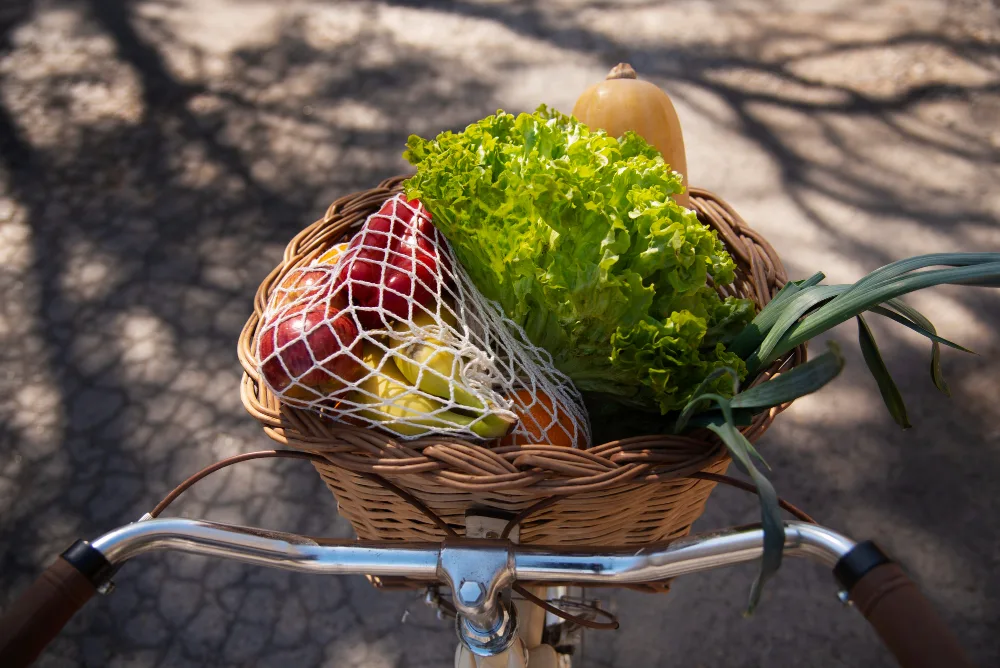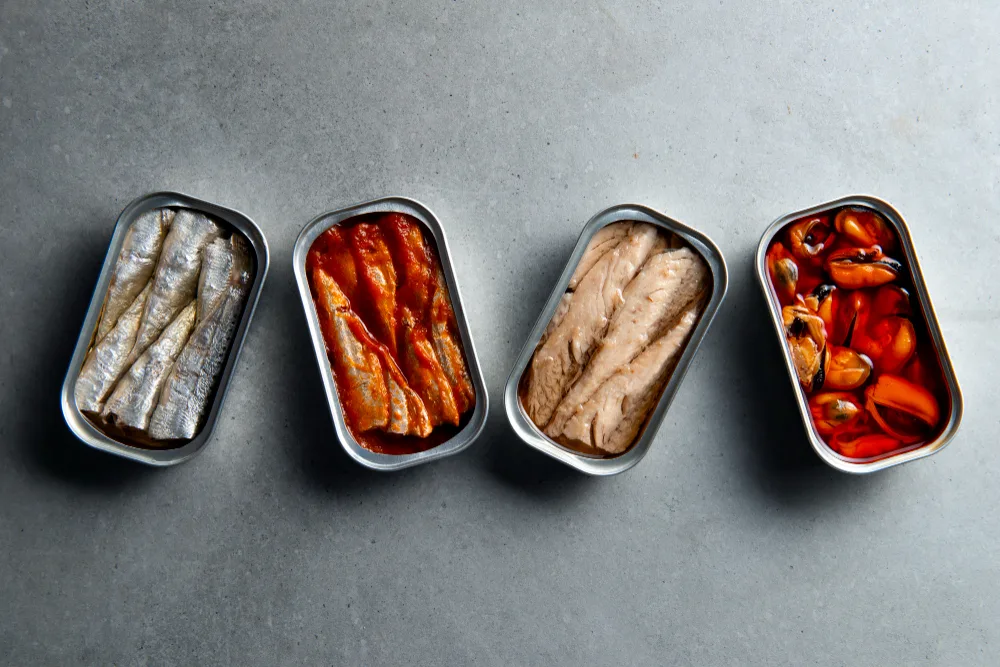Exciting developments are on the horizon in the world of food as we gear up to embrace the top 5 food trends set to dominate culinary landscapes in 2025. From innovative sustainability practices to revolutionary dietary choices, get ready for a delicious journey ahead!
What is a food trend?
Food trends are like the ever-evolving flavors of the culinary world, constantly changing and adapting to new tastes and preferences.
A food trend can be a particular ingredient, dish, cooking technique, or eating habit that gains popularity within a specific time frame. It could be driven by celebrity chefs, social media influencers, cultural influences, or even environmental concerns.
These trends often shape how we shop for groceries, dine out at restaurants, or cook meals at home. They inspire creativity in the kitchen and encourage experimentation with different flavors and ingredients.
Whether it’s a resurgence of ancient grains or a newfound obsession with plant-based proteins, food trends offer an exciting glimpse into the future of gastronomy.
Top 5 Food Trends for 2025
Are you ready to discover the exciting food trends that will shape our plates in 2025? Let’s dive into the future of food and explore what culinary innovations await us!
First up, we have Urban Farm Produce. Imagine fresh fruits and vegetables grown right in the heart of your city, reducing carbon footprint and providing hyper-local ingredients for a sustainable diet.
Next on the list is Reducetarian Eating. This trend focuses on reducing meat consumption without completely eliminating it, making room for more plant-based options that are not only good for your health but also for the planet.
Culinary Upcycling is another trend to look out for in 2025. It involves creatively using food scraps or by-products to minimize waste and create delicious dishes with a focus on sustainability.
Climate-Conscious Foods take center stage as consumers become more aware of their impact on the environment. From regeneratively farmed produce to carbon-neutral products, this trend emphasizes eco-friendly choices.
Tinned Fish emerges as a convenient and nutritious option packed with omega-3 fatty acids and protein. Perfect for busy lifestyles while promoting sustainable fishing practices.
The future of food certainly looks promising with these innovative trends leading the way towards a healthier planet and happier taste buds!
1. Urban Farm Produce
Urban Farm Produce is set to take the spotlight in 2025 as more people are embracing locally grown foods. These urban farms are sprouting up in city landscapes, providing fresh and sustainable produce right at our doorstep. The concept of farm-to-table will evolve into farm-to-city living, with residents having access to a variety of fruits, vegetables, and herbs grown just around the corner.

This means we can enjoy a diverse range of fresh produce year-round without relying heavily on traditional agricultural practices.
Not only does urban farming reduce the carbon footprint by minimizing transportation distances, but it also promotes community engagement and education on where our food comes from. Imagine picking ripe tomatoes or crisp lettuce from a rooftop garden in the heart of downtown – that’s the future urban agriculture envisions.
With advancements in technology and innovative growing methods like hydroponics and vertical farming, urban farms can flourish even in limited spaces.
The trend towards Urban Farm Produce aligns perfectly with the increasing demand for organic, pesticide-free options that support sustainable farming practices. As consumers become more conscious about their food choices and environmental impact, urban farming offers a tangible solution that benefits both individuals and the planet.
In 2025, expect to see an abundance of leafy greens, colorful berries, and aromatic herbs cultivated within city limits. Urban Farm Produce isn’t just about what we eat; it’s about transforming our relationship with food production and reimagining how cities can be self-sufficient hubs of culinary innovation.
2. Reducetarian Eating
Have you heard of the term “Reducetarian Eating”? It’s a growing food trend that focuses on reducing one’s consumption of meat and other animal products without completely eliminating them from their diet.
This approach is gaining popularity as more people are becoming conscious of the environmental impact of meat production and the benefits of plant-based diets. Reducetarians aim to make small but meaningful changes in their eating habits to improve their health and lessen their carbon footprint.
By incorporating more plant-based meals into their diet, reducetarians can still enjoy the flavors and nutrients found in fruits, vegetables, grains, and legumes while cutting back on animal products. This flexible approach allows individuals to personalize their dietary choices based on their preferences and values.
Whether it’s Meatless Mondays or choosing plant-based options when dining out, reducetarian eating offers a practical way for individuals to contribute to sustainability efforts without completely giving up meat. So why not give it a try and see how small changes can make a big difference?
3. Culinary Upcycling
Have you heard about the culinary trend that’s all about reducing food waste and getting creative in the kitchen? Culinary upcycling is gaining popularity as more people look for ways to make delicious dishes while being mindful of sustainability. Instead of throwing out leftover ingredients or scraps, chefs and home cooks are finding innovative ways to repurpose them into new meals.
By incorporating culinary upcycling into your cooking routine, you can not only help reduce food waste but also discover unique flavor combinations and textures. Imagine turning vegetable peels into crispy snacks or using fruit pulp from juicing to create flavorful sauces or desserts. It’s a fun and eco-friendly way to experiment with ingredients and elevate your cooking skills.
Whether it’s transforming stale bread into croutons or using overripe fruits in smoothies, culinary upcycling encourages creativity in the kitchen while promoting a more sustainable approach to food consumption. Next time you’re tempted to toss out those odds and ends, consider how you can give them new life through culinary upcycling techniques!
4. Climate-Conscious Foods
As we look towards the future of food trends in 2025, one key focus is on climate-conscious foods. With increasing awareness of environmental issues, more people are seeking out sustainable and eco-friendly options when it comes to what they eat.
Climate-conscious foods involve products that have a lower carbon footprint and are produced in ways that minimize harm to the environment. This trend encompasses plant-based alternatives, locally sourced ingredients, and ethical farming practices.
Consumers are becoming more mindful of where their food comes from and how it impacts the planet. From reducing meat consumption to supporting regenerative agriculture, there is a growing movement towards making choices that benefit both our health and the Earth.
By choosing climate-conscious foods, individuals can play a part in mitigating climate change and promoting sustainability within the food industry. It’s not just about what tastes good anymore; it’s about making choices that make a positive impact on our world.
5. Tinned Fish
When it comes to food trends for 2025, one that is making waves is the rise of tinned fish. Gone are the days when canned seafood was seen as a last resort in the pantry – now, it’s all about embracing the convenience and sustainability that tinned fish has to offer.

Tinned fish is not only convenient but also nutritious, packed with essential omega-3 fatty acids and protein.
With more people looking for quick and easy meal options without compromising on quality, tinned fish fits the bill perfectly.
Moreover, tinned fish helps reduce food waste by extending the shelf life of seafood products. It’s a practical choice for those seeking to incorporate more sustainable eating habits into their daily lives while still enjoying delicious meals.
From tuna to sardines and anchovies, there are endless possibilities when it comes to incorporating tinned fish into your diet. Whether added to salads, sandwiches, or pasta dishes – this versatile ingredient adds a flavorful punch to any meal without breaking the bank.
Conclusion
As we look ahead to the culinary landscape of 2025, it’s evident that food trends are evolving rapidly. From urban farm produce to climate-conscious foods, there’s a clear shift towards sustainability and innovation in how we eat.
These emerging trends not only cater to our changing tastes but also reflect a growing awareness of the impact of our food choices on the environment. As consumers become more conscious of where their food comes from and its carbon footprint, the industry is responding with creative solutions and new offerings.
Also read more article about food
With an increasing focus on reducing waste, embracing plant-based options, and supporting local growers, 2025 promises to be an exciting time for food enthusiasts. Whether you’re a seasoned chef or simply enjoy exploring new flavors, these trends offer something for everyone to savor and experiment with.
So as we eagerly anticipate what the future holds for our plates, let’s embrace these upcoming trends as opportunities to broaden our culinary horizons and make more sustainable choices that benefit both ourselves and the planet.
FAQ
Q: Are these food trends only limited to 2025?
A: While these trends are projected to be prominent in 2025, they could continue to evolve and shape the future of the food industry beyond that year.
Q: How can I incorporate these food trends into my lifestyle?
A: You can start by exploring local urban farm produce markets, gradually reducing your meat consumption, experimenting with upcycled ingredients in your cooking, supporting climate-conscious brands, and trying out different tinned fish recipes.
Q: Will following these food trends have a positive impact on the environment?
A: Yes, embracing these food trends can contribute to sustainability efforts by promoting eco-friendly practices such as urban farming, reducing meat consumption for lower carbon footprints, minimizing food waste through culinary upcycling, choosing climate-conscious foods that support regenerative agriculture practices, and opting for responsibly sourced tinned fish options.
Stay curious and adventurous in your culinary journey as you explore these top five food trends for 2025. Embrace innovation while honoring tradition in every bite you take towards a more sustainable future!
